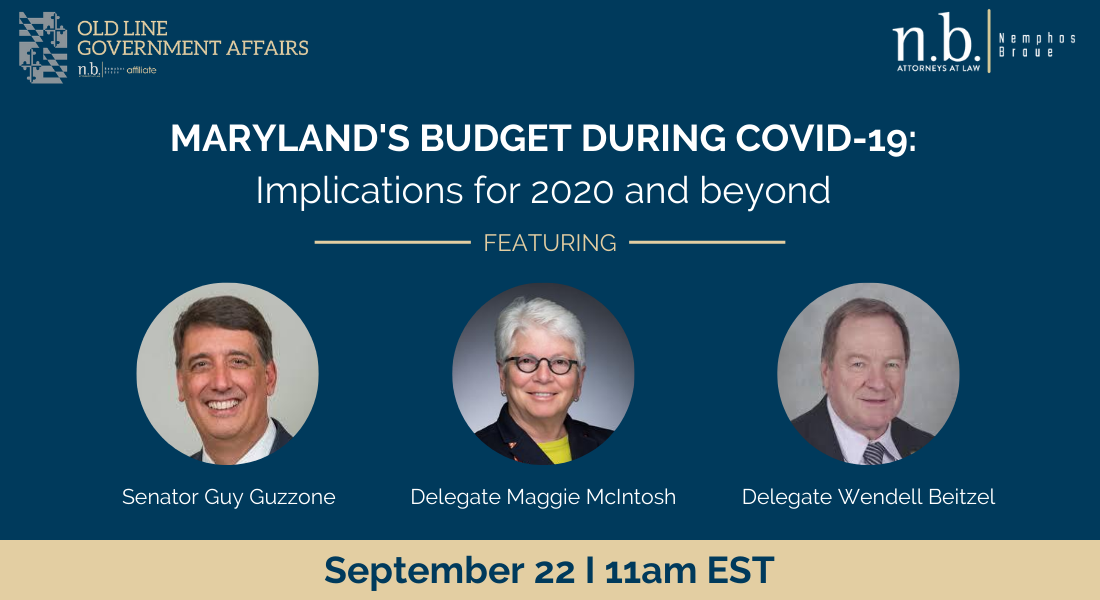
Date:
September 22, 2020
Panelists:
- Senator Guy Guzzone (D) District 13, Chair, Budget and Taxation Committee
- Delegate Maggie McIntosh (D) District 43, Chair, Appropriations Committee
- Delegate Wendell Beitzel (R) District 1A, Member, Appropriations Committee
Hosted by Old Line Government Affairs Senior Director of Government Affairs American Joe Miedusiewski and Managing Director Brett Lininger
Event Description:
Maryland businesses of all sizes across industries have faced unprecedented challenges throughout this year. Given the impact COVID-19 has had on budgetary and fiscal decision making, Old Line Government Affairs brought together members of the legislature for a conversation about Maryland’s budget, and implications on 2020 and beyond.
We’ve included highlights from below, along with a link to the full webinar.
On Maryland’s Budget Process:
Senator Guzzone: The budget is a multiyear process. Good news: FY20 was in good shape. Going into FY21 we were better than we thought we’d be: A $2 billion problem turned out to be more like $600 million. Bad news: we’re looking at a $3 billion problem for FY22.
Delegate Beitzel: One of the biggest problems is how to host the session and committee meetings. There’s uncertainty for lobbyists as well, and they can often be a great resource for delegates.
Delegate McIntosh: Budgets are a marathon, not a sprint. We have to change how we are conducting business. There will be access, just at a distance. Looking at previous recessions, we need to learn from errors in the past, using an approach so as not to grow the problem. With so much uncertainty, we need to proceed with caution even in regards to the budget.
Senator Guzzone: The legislature has been very thoughtful in dealing with the budget, establishing a rainy day fund, dealing with capital gains, etc. What’s presented is more of an “aspirational” budget — what we think should happen. This can be confusing when presented to the public because it includes structural deficits. However, at the end, the constitution requires that there be a balanced budget, and we have that. Overall, the budget process is:
- cumbersome
- creates misperceptions
- unique to Maryland
Delegate McIntosh: The budget process can be frustrating, especially when looking 6 years out. We have little ability to predict revenue, but that can be hard to explain to constituents. This year started out by having eliminated the structural deficit. Then COVID happened.
Delegate Beitzel: Conference committees are able to work out the differences between chambers. The balanced budget is a requirement, but revenue is not coming in as expected.
For more key highlights and takeaways including:
- Status of the budget before COVID-19
- A proposed constitutional amendment to allow greater flexibility for the legislature in shifting budget funds
- Parallels to previous recessions and lessons learned
- Implications of recent sales tax changes
- Priorities and biggest challenges now in the wake of the pandemic
watch the full webinar below.




